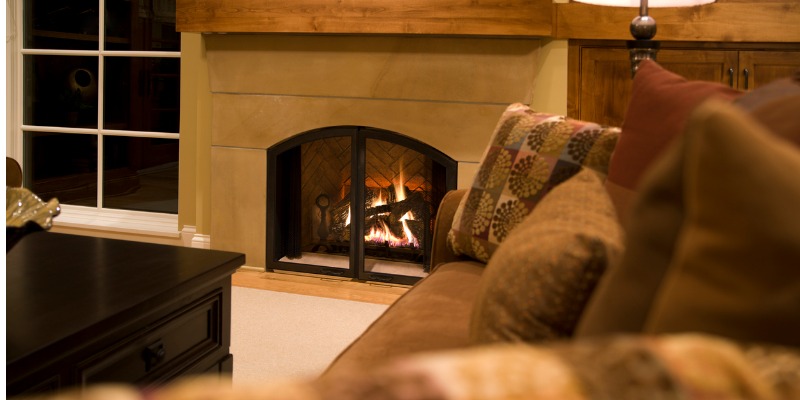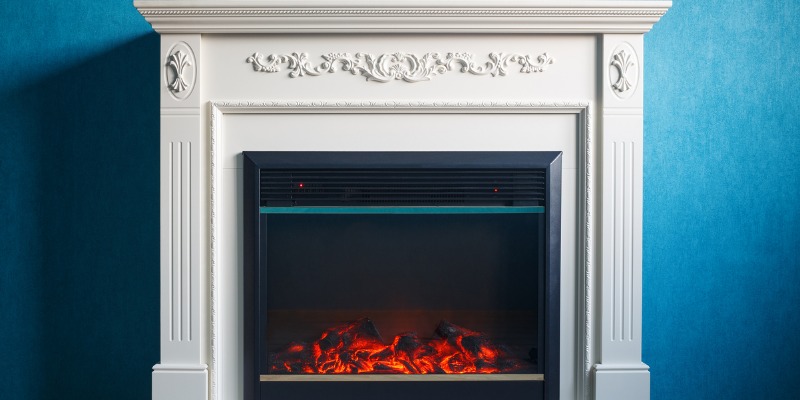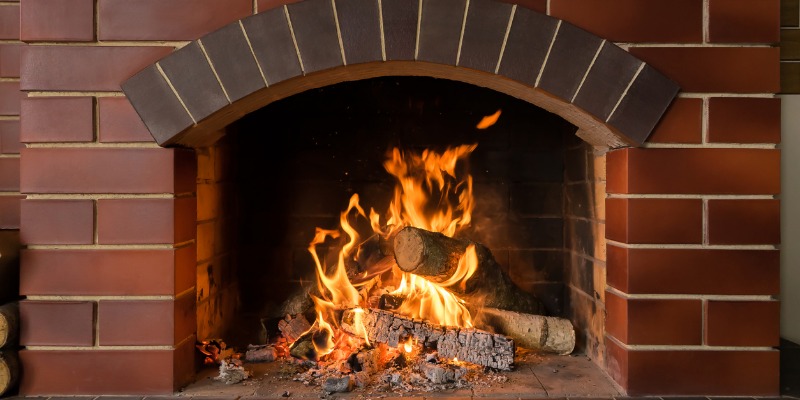When it comes to heat efficiency, some of the most frequently asked questions we receive include:
- Do gas fireplaces, electric fireplaces, wood fireplaces or furnaces heat better?
- How much energy does an electric fireplace use?
- What is the cost of running a gas fireplace versus a furnace?
- How much energy consumption does a gas furnace use compared to a fireplace?
- Are wood burning fireplaces sustainable?
These are all questions you may be asking yourself as you make the important decision of what type of heating system is right for your home. This blog will help you understand the pros and cons of four different systems; gas fireplaces, electric fireplaces, wood fireplaces and furnaces.
Gas Fireplaces
Pros:
- Can replace a pre-existing fireplace by using the same masonry and chimney
- Low maintenance
- Gas fireplaces are useful for zone heating rather than heating an entire home
- High energy efficiency, low pollution
- No ash or creosote produced that needs to be cleaned up.
Cons:
- While natural gas is affordable, propane is an expensive fuel for heating
- Will produce the same amount of heat as wood or pellets for a higher cost
- You won’t get the aroma of a real fire.
Electric Fireplaces
Pros:
- Dozens of décor and design possibilities to suit any home
- Adds to your home’s atmosphere and increases the coziness of a small space like an apartment or condo
- Saves space due to its small size (perfect for small rooms)
- A variety of sizes and shapes are available that can be combined with shelving, mantels or TV stands
- Longer lifespan than other fireplaces
- Easy installation
- Portable if you are moving to a new home
- Does not require a chimney or gas line
- Can run without producing heat for a nice atmosphere on summer nights
- No heat production is lost through a chimney or venting
- Provides effective zone heating to keep your thermostat lower
- High safety rating
- Highly energy efficient
- Low maintenance – just change the light bulb every couple of years
- Lower installation and running costs than other options.
Cons:
- No real flames for aesthetic appeal
- Not designed to act as a primary heat source
- Requires electricity and cannot be used during power outages
- Will not increase the value of your home since it is not a permanent fixture.
Wood Fireplaces
Pros:
- Most classic and traditional fireplace option
- Authentic appearance and smell
- Cozy to spend time around
- Can cook on them during a power outage.
Cons:
- High maintenance
- Regular cleaning
- Heat-loss through chimney
- Low efficiency rating
- Real flames can be dangerous
- Steady supply of wood that is dry is required to operate (as well as the work involved with having a ready supply of wood).
Furnaces
Pros:
- Evenly heat entire home
- High-efficiency
- Cost-effective
- Low-maintenance compared to some of the other options we’ve mentioned.
Cons:
- No added décor or ambience
- Requires regular maintenance.
Typically speaking, it is difficult to compare a furnace with a fireplace as many homes will have both. A furnace can be used to heat the entire home evenly. On the other hand, a fireplace is a nice addition for zone heating certain rooms and therefore allows your furnace to do less work in the background.
As far as fireplaces go, electric fireplaces offer the most convenience, but it really depends on your personal preference and the size of your home! Contact the pros at Woodbridge GTA ClimateCare for advice on the best heating system for your home.









